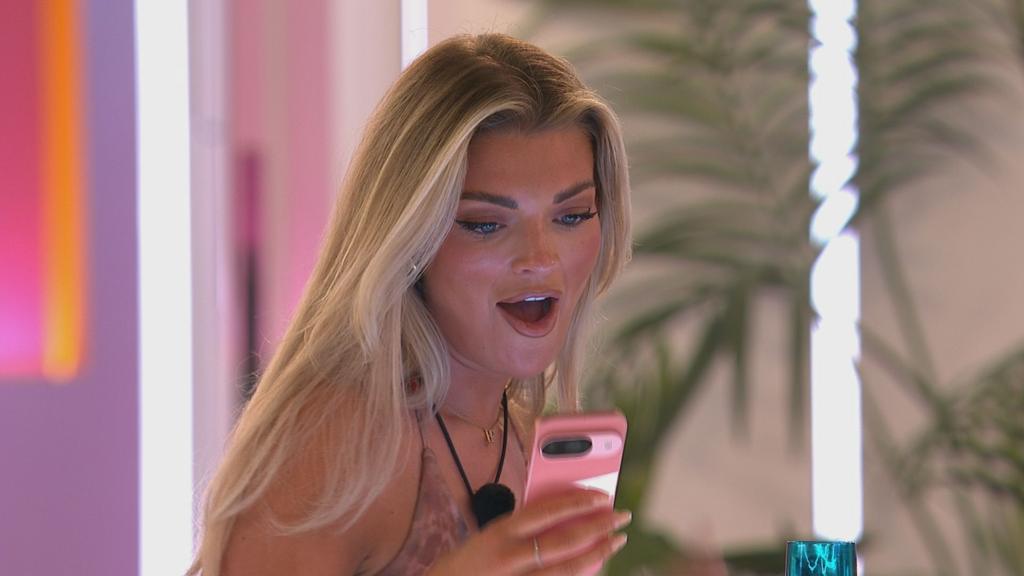Love Island has returned for its 12th season, and the upgrades extend beyond the villa itself.
After experiencing a decline in viewership in recent years, the show is witnessing a resurgence in audience numbers, reaching levels comparable to series eight—the season that introduced Love Island icons such as Ekin-Su Cülcüloğlu, Indiyah Polack, and Tasha Ghouri.
While daily episodes remain a core offering, social media is emerging as a significant driver of engagement.
Data shared with BBC Newsbeat by ITV indicates that the series’ growth on social platforms is outpacing its television success.
According to BBC analysis, Love Island’s official accounts have gained 1.8 million followers since the beginning of 2025, with TikTok accounting for 1 million of those.
Former islander Diamanté Laiv told BBC Newsbeat that the availability of short-form updates is more appealing than committing to the nightly TV show.
“I’m a very busy person, so I don’t really have the time to sit down every day for an hour and just watch people kiss,” she stated.
Diamanté, who participated in series 11, expressed no surprise that millions are staying informed through their phones.
“It’s more popular online because everybody’s online; it’s easily accessible. Every 10 scrolls on TikTok features something Love Island-related, so you can’t really avoid it.”
She is not alone in opting out of watching full episodes.
While the premiere episode of series 12 attracted 2.6 million viewers—nearly double the 2023 low of 1.3 million—the figures still fall short of Love Island’s peak in 2019, when 6 million viewers tuned in to witness Amber Gill and Greg O Shea crowned as the most popular couple.
However, that number is dwarfed by the 13 million followers across various official online accounts.
TikTok has seen an explosion of Love Island content, with individual clips surpassing the viewership of entire episodes.
While dramatic or humorous moments from the show tend to perform well, reactions, analyses, and recaps—where content creators summarize entire episodes in just a few minutes—are also garnering significant attention.
Data gathered by the BBC indicates that there have been more than 87,000 TikTok uploads with a Love Island or Love Island UK hashtag so far in 2025.
In comparison, the same data suggests that the figure for the entirety of 2024 was just under 40,000.
Anthony, known online as “giletslays,” is among the content creators fueling this growth.
He has been creating videos about the latest series for his 170,000 followers, with some of his Love Island-related content reaching millions of views.
Anthony contends that the real appeal of Love Island has always been the discourse surrounding it on social media.
However, staying informed requires consistent engagement, and committing to a nightly show can feel overwhelming for some viewers.
“Sometimes if people miss a couple of episodes, they feel they’re too far behind to catch up,” Anthony explained.
Harriet Fisher, a dedicated Love Island fan since series one, concurs that TikTok has become the primary source for updates.
She notes that the US version of the show, which has overlapped with the UK edition this year, is “popping off” on the app, contributing to increased interest in Love Island overall.
“The way that people are engaging with reality TV and Love Island in general is obviously changing,” she stated.
“It needs TikTok and social media to survive, to gain viewers.”
“It shows that viewers of old can stay engaged, but also get those new viewers in.”
However, Diamanté cautions that these new viewers are forming a significantly different relationship with the contestants.
Traditionally, audiences have spent entire series getting to know islanders through hour-long episodes.
Even then, contestants have often cited selective editing as a factor in portraying them in a negative light.
Diamanté expresses concern that social media, with its character arcs condensed into brief clips, may prevent fans from gaining a complete understanding.
“Conversations are being pulled and tweaked, so I feel like it makes it even more orchestrated,” she said. “It kind of takes the reality out of the reality TV.”
Grace Henry, acting entertainment and lifestyle director at Cosmopolitan, agrees that watching the show via social media fundamentally alters the experience.
“We have to be mindful that these are short clips, and clips can be taken out of context,” she said.
“We’re never going to see the full picture of how someone is, and things change very quickly in there.”
However, Grace believes that online notoriety could benefit aspiring reality stars, even if audiences spend less time with them.
She highlights Yasmin Pettet, nicknamed YasGPT online, as an islander who has successfully connected with audiences this year.
Videos of Yas giving posture lessons have garnered over a million views on TikTok and tens of thousands of likes on Instagram.
“We will still have those people, and we will have a connection to them, but they will just come around differently,” said Grace.
“It will be based on viral moments and whether they do something big that becomes a meme or a social media moment.”
Diamanté concurs, suggesting that social clips might be a more effective way to build a following than being popular on the series.
In addition to reaching a broader audience, she notes that “more brands are seeing it, and that’s the aim of the game.”
Listen to Newsbeat live at 12:45 and 17:45 weekdays – or listen back here.
Over the past few weeks, a boy dancing on the prow of a racing boat has become an internet sensation.
Miles Nazaire was criticised online for giving up his pet, saying he didn’t have time to look after him.
Cierra Ortega’s parents say it’s been a “painful” week after posts emerged featuring a racial slur.
BBC Radio 1 announces a shake-up to its schedule for the summer months.
Trump says he thinks China’s president will probably approve a sale to the unidentified group.

